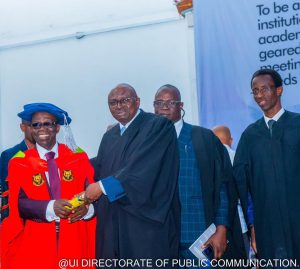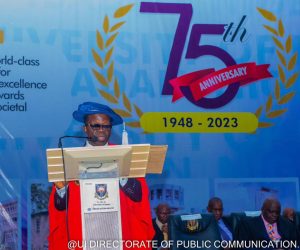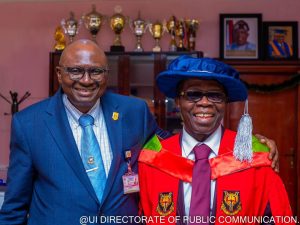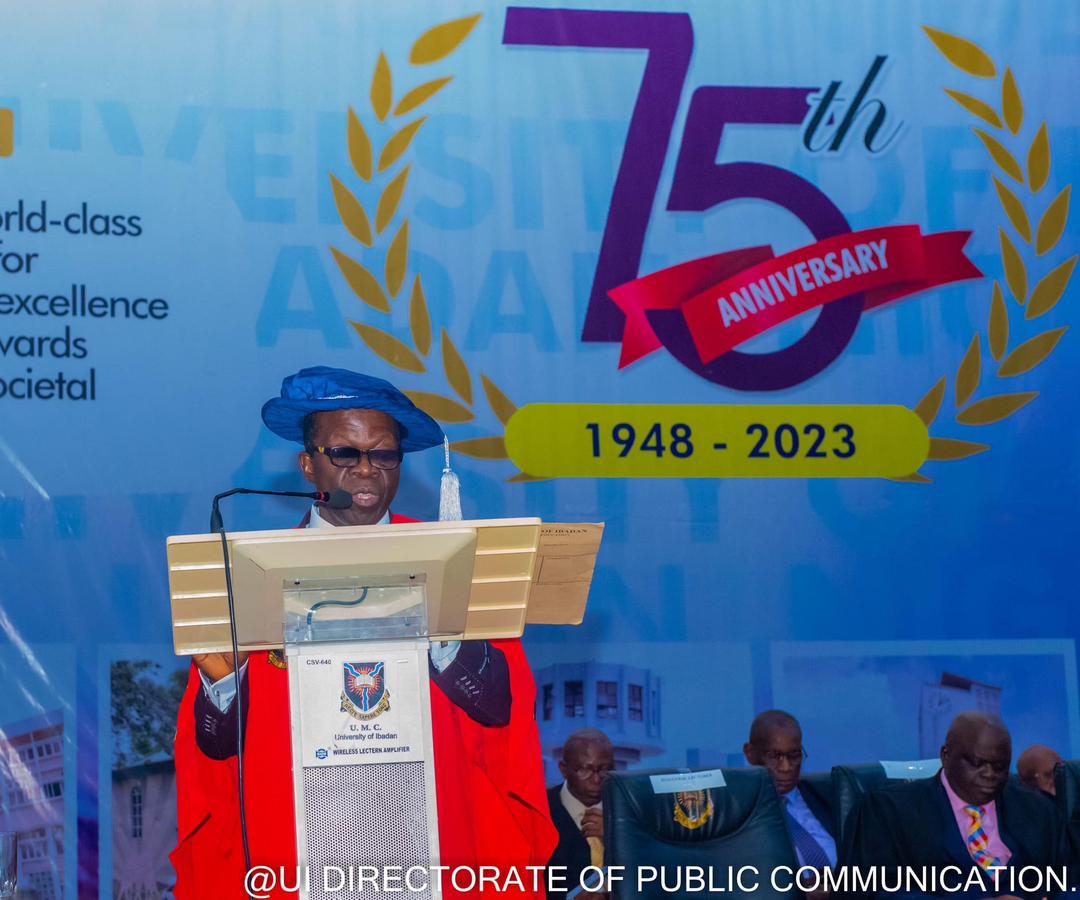Teachers have be advised to be aware of the fact that effective classroom assessment and evaluation require a deep understanding of the role of evaluation in the teaching-learning process.
This was the assessment of a scholar, Professor Joseph Abiodun Adegbile, a professor at the institute of Education University of Ibadan, Ibadan.
Professor Joseph Abiodun Adegbile while delivering the 536th Inaugural Lecture of the University at the Trenchard Hall maintained that it has been scientifically proven that an avid reader is most likely to be a good evaluator.



Professor Joseph Abiodun Adegbile during his inaugural lecture on behalf of the institute of Education of the University noted that English language curriculum should be planned in such a way that various linguistic structures are sufficiently reflected as that the evaluation scheme, which is an integral aspect of the curriculum, should no be relegated.
Professor Akingbile’s inaugural lecture which marks the 14th edition of the institute of education had in attendance scholars in all discipline, as well as dignitaries across all spheres of life.
Speaking on the title of the inaugural lecture, “A Man Of Interwoven Fibres” – Language Education And Educational Evaluation: A Language Educator-Evaluator’s Experiences; Professor Joseph highlighted factors that could be hindering the smooth teaching and learning of English language with focus on both secondary and tertiary academic levels.
He said, “Having worked for about seventeen years at the secondary and teachers’ college level and twenty five years at the university level, the training I received in the area of language education during my first and second degree days enabled me to cope efficiently with the rudiments of evaluation. In other words, when I found myself in the discipline of evaluation, it was easy for me to apply my training in the area of language education to the teaching and research activities.
“If it is possible to find language in every discipline and in all other human endeavors, we can therefore assert that there is language in evaluation. When the role of evaluation in the education process is being discussed, the concept of educational evaluation is also being emphasized. Evaluation plays a very significant role in teaching-learning process which is one of the human activities in which language plays a dominant role.
In his recommendation, Professor Joseph said, “that teachers should be very aware of the fact that effective classroom assessment and evaluation require a deep understanding of the role of evaluation in the teaching-learning process.
“In order for various forms of language assessment to be useful for educational evaluation practices, they should be properly linked to behavioral objectives and designed to enhance student performance. English language curriculum should be planned in such a way that various linguistic structures are sufficiently reflected as that the evaluation scheme, which is an integral aspect of the curriculum, should no be relegated.”
“In view of the interrelatedness of language and evaluation, language educators should have at their fingertips the rudiments of educational evaluation practices and how effectively they can be carried out and used to develop the English language curriculum.” Joseph suggested.
Professor Joseph in his lecture further noted that educational evaluation is a professional activity that individual educators need to undertake in order to continuously review and enhance the learning they endeavor to facilitate. Stressing that educational institutions require evaluation data to demonstrate effectiveness to funders and other stakeholders.
He said, “One of the major concerns of teaching the English language for teachers is assessing and evaluating students’ progress during the teaching-learning process. One of the assessment device which helps the teacher greatly in making certain decisions in the teaching of the English language is testing.”
While speaking about the elements of language evaluation, Prof. Joseph said, “For any evaluation exercise to be a successful and effective one, the use of correct language is highly essential.”
“If the success of learning at all levels depends upon the students’ ability to read written language with a relatively good comprehension, then it stands to reason that everybody engaging in any type of evaluation must be versed in all the language skills, especially reading and writing.”
“In any teaching-learning task, teacher is expected to present facts and figures to the students. He must be able to explain concepts and passes information across to the learners.The teacher uses English language as a medium of instruction to express himself while students listen and take part in classroom activities. At the end of the programme, evaluation activities take place in terms of tests and examinations.”
“The test instrument is always constructed in English language and tests are expected to respond in the same language, depending on the learner’s indigenous language. In the contest of evaluation research, English language is used by a researcher to express his thoughts , feelings and findings, and since research is a systematic investigation into and study of materials and sources in order to establish facts and reach new conclusions, the use of the English language should not be relegated.”
“It should be pointed out that without language there is no evaluation and without evaluation activity is used in developing a language. Most of the languages throughout the world have been developed through evaluation and evaluation research.”
“My areas of research have shown that teaching and community service have dwelt mainly on evaluation in English language education and curriculum and instruction. It is becoming obvious that language education and educational evaluation are ‘a mat of interwoven fibres’. In other words, there are elements of language in evaluation and evaluation in language teaching and learning.”
“It’s through the help of language that evaluation tasks are carried out, an it is also with the help of evaluation that a language is developed. A language educator is not necessarily an evaluator, and an evaluator is also not necessarily a language educator. But the duty of a language educator -evaluator is more demanding, taxing and tasking.
While evaluating students’ reading habits, Prof Joseph said, “it is interesting to note that 58% of the subjects did not engage in the reading of textbooks at all. It could be concluded that the subjects’ attitude towards reading of the text book was quite negative. Good reading habits are highly needed in evaluation activities. An avid reader is most likely to be a good evaluator.

